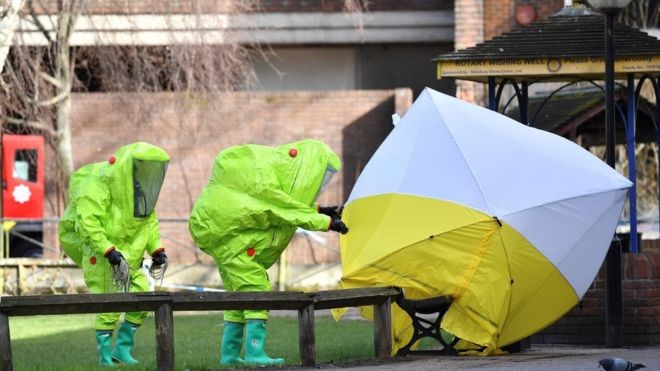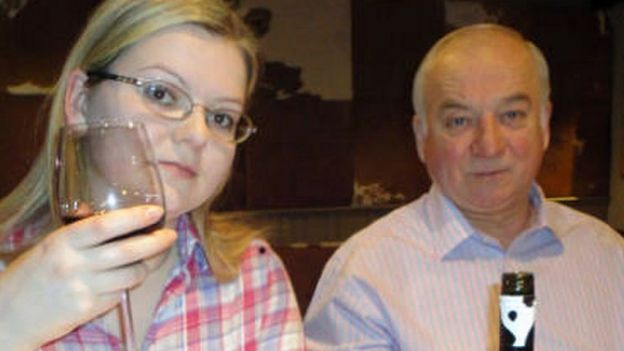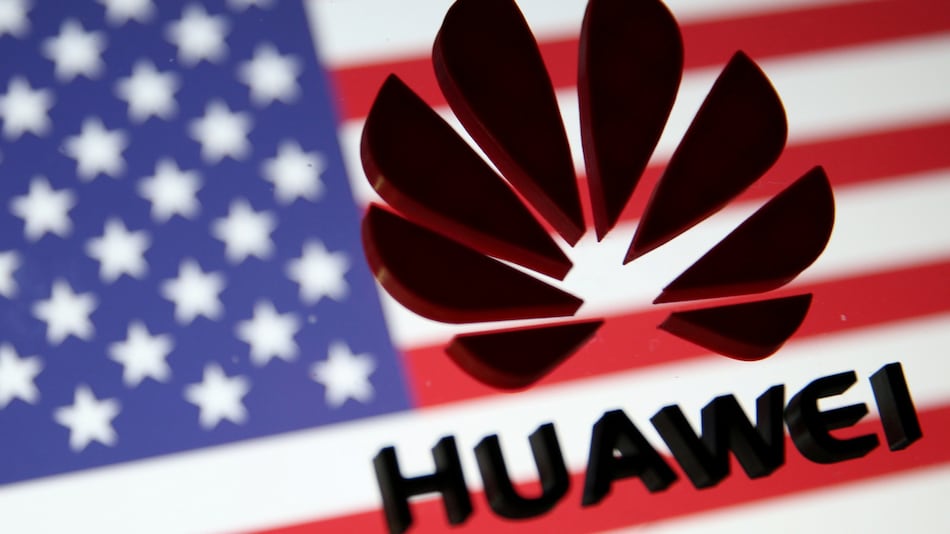
The US has said it will impose fresh sanctions on Russia after determining it used nerve agent against a former Russian double agent living in the UK.
Sergei Skripal and his daughter Yulia were left seriously ill after being poisoned with Novichok in Salisbury in March, though they have now recovered.
A UK investigation blamed Russia for the attack, but the Kremlin has strongly denied any involvement.
Russia has criticised the new sanctions as “draconian”.
In a statement released on Wednesday, the US State Department confirmed it was implementing measures against Russia over the incident.
Spokeswoman Heather Nauert said it had been determined that the country “has used chemical or biological weapons in violation of international law, or has used lethal chemical or biological weapons against its own nationals”.
- What happened to the Skripals?
- Who is Sergei Skripal?
- What are nerve agents and what do they do?.
The British government has welcomed the move.
“The strong international response to the use of a chemical weapon on the streets of Salisbury sends an unequivocal message to Russia that its provocative, reckless behaviour will not go unchallenged,” a UK Foreign Office statement said.
The Russian embassy in the US hit back on Thursday morning, criticising what it called “far-fetched accusations” from the US that Russia was behind the attack.
Russia had become “accustomed to not hearing any facts or evidence”, it said, adding: “We continue to strongly stand for an open and transparent investigation of the crime committed in Salisbury.”
What are the sanctions?
The new sanctions will take effect on or around 22 August, and relate to the exports of sensitive electronic components and other technologies.
The State Department said “more draconian” sanctions will follow within 90 days if Russia fails to give reliable assurances it will no longer use chemical weapons and allow on-site inspections by the United Nations.
 Image copyrightREX FEATURES
Image copyrightREX FEATURESAn official said it was only the third time that the US had determined a country had used chemical or biological weapons against its own nationals.
Previous occasions were against Syria and against North Korea for the assassination of Kim Jong-nam, the half brother of leader Kim Jong-un, who died when highly toxic VX nerve agent was rubbed on his face at Kuala Lumpur airport.
Are these the only US sanctions against Russia?
No. In June the US imposed sanctions on five Russian companies and three Russian individuals in response to alleged Russian cyber-attacks on the US.
All are prohibited from any transactions involving the US financial system.
- Will Russian suspects face UK trial?
- Poisoning area gets economy funding
Treasury Secretary Steven Mnuchin said the measures were to counter “malicious actors” working to “increase Russia’s offensive cyber-capabilities”.

Russia likely to resist
Analysis by Gary O’Donoghue, BBC News, Washington
After pressure from Republican members of Congress, the State Department has determined Moscow broke international law by using a military grade chemical weapon on the Skripals.
While the US expelled some five dozen diplomats shortly after the poisoning, the administration stopped short of making a formal determination that Russia had broken international law.
But Congress has been pushing for such a decision and now the state department has confirmed Russia’s actions contravened 1991 US legislation on the use of chemical weapons. That breach automatically triggers the imposition of sanctions and places requirements on Russia to avert further restrictions in three months’ time.
Those requirements could include opening up sites in Russia for inspection – a move Moscow would probably resist.
So far President Donald Trump has been silent on this latest move – which could well derail his attempts to develop a new, warmer relationship with Vladimir Putin.

What was the nerve agent?
Following the incident, the British government said the military-grade nerve agent Novichok, of a type developed by Russia, had been used in the attack.
Relations between Russia and the West hit a new low. More than 20 countries expelled Russian envoys in solidarity with the UK, including the US. Washington ordered 60 diplomats to leave and closed the Russian consulate general in Seattle.
Three months after the Salisbury attack, two other people fell ill at a house in Amesbury, about eight miles from the city. Dawn Sturgess later died while her partner, Charlie Rowley, spent three weeks recovering in hospital.
After tests, scientists at the UK’s military research lab, Porton Down, found the couple had also been exposed to Novichok.
Mr Rowley told ITV News he had earlier found a sealed bottle of perfume and given it to Ms Sturgess, who sprayed the substance on her wrists.
source:-.bbc



